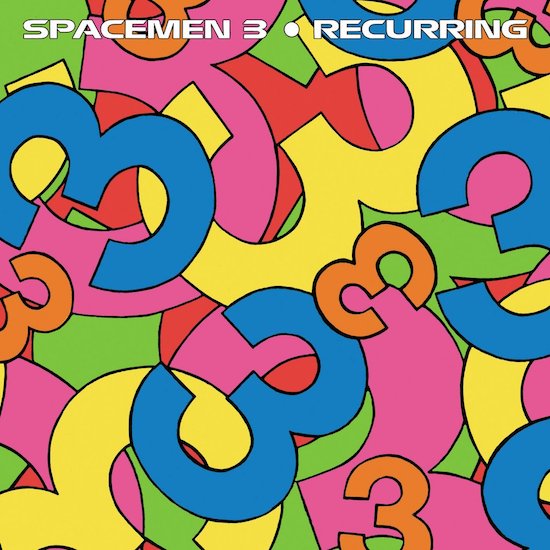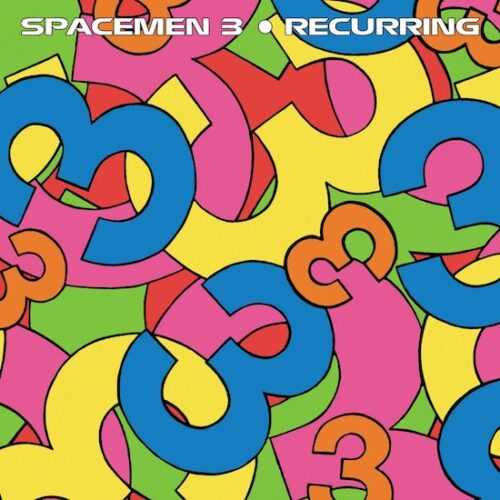There’s a romanticism surrounding music that’s arguably unmatched by any other art form. Be it triumph over adversity (that air punching moment when the long shadow of a monochrome past is jettisoned for a bright new future such as New Order’s butterfly-like transformation with ‘Blue Monday’), suffering for one’s art in the face of almost overwhelming odds (how often has the drama of crippling addiction been played out?) or even tragedy as farce (the creation of Happy Mondays’ Yes Please! springs immediately to mind), music is, on the surface, at least, where the best anecdotes lie. These are tales of heroism, struggle and, of course, unbridled stupidity.
The images used to illustrate these tales are every bit as important. After all, a picture tells a thousand words, but even then they’re not guaranteed to tell the truth. Take, for example, the cover to what was The Verve’s then-final single, ‘History’. Shot on location in the oddly barren yet undeniably creepy and menacing landscapes of a mid-90s Times Square and 42nd Street where boarded-up movie theatres, sex shops and human derelicts dominated the area, the message that ‘All Farewells Should Be Sudden’ is central to the single’s theme. No sooner had the single been released, then the band had ceased to exist.
It’s an idealistic fancy, of course, not least as the demise of any band rarely comes out of the blue. The Beatles’ Ringo Starr once likened the long and protracted break-up of his former alma mater to a divorce. Little things slowly and methodically build up until they become intolerable. As anyone who’s been in the eye of that particular hurricane will attest, all it takes is for one person to start believing their own bullshit, or to start turning up late, or to start belittling the work of their band mates to help bring about the demise of something special. Much like the drip-drip-drip of water torture, what starts off so innocuously becomes a matter of nagging and gnawing irritation.
But what is undeniable is that great music can emerge from times of internal friction. Would Fleetwood Mac’s Rumours have achieved its apogee were it not for the soap opera that was played out during its creation to become its central theme? Likewise, the simmering tensions and quiet desperation at the heart of Pink Floyd yielded the double album sprawl of The Wall, a record that would lead to the band’s fracturing and ignominious end with the pompous The Final Cut before transforming from band to brand. Elsewhere, New Order pulled off one of their greatest singles in the shape of ‘Regret’ while being forced to record Republic in an effort to save Factory Records while barely tolerating each other.
Adding to this milieu of substantial work being birthed from the womb of chaos is Spacemen 3’s swan song, Recurring. Released in February 1991, the band’s fourth and final studio outing should have been the crowning moment that they moved up a league from cult concern to major players. Certainly, the indicators in the wake of the album’s predecessor, Playing With Fire suggested so. Rightly showered with critical garlands, Spacemen 3’s third album found the band taking several huge leaps forward. Unlike other psychedelic explorers of the time, Spacemen 3 eschewed the influences of the 60s, six-string onslaughts fed through any number of overdrive and fuzz pedals and instead embarked on a journey of sound, space and mood.
Crucially, Spacemen 3 began to find their audience. Having slogged their way through the backrooms of pubs and club nights on the UK’s toilet circuit as well sojourns to the continent, the aftermath of the album’s release saw the band play their biggest gigs to date. Bolstered by the addition of third guitarist Mark Refoy and drummer Jonny Mattock, the album’s core trio of singer-guitarists Pete Kember and Jason Pierce and bassist Will Carruthers completed a European tour in the spring of 1989 before embarking on a 10-date UK tour, which culminated with their biggest indoor headliner at the 2,300-capacity Town & Country Club in Kentish Town, north London.
Fast forward a month and Spacemen 3 took the stage at the Reading Festival. Though they were sandwiched between Friday openers Gaye Bykers On Acid and My Bloody Valentine, the festival had taken on a whole new significance. The horrendous and hoary outdated acts of yore had been kicked into the long grass and for what seemed like the first time in an age, the festival had been given a radical makeover to actually reflect contemporary tastes. It turned out to be their final performance, for little did Spacemen 3 know that what should have been a victory lap for the band proved to be a breeding ground for slow-boiling resentments, rows over credits, money and the gradual factionalism that led to the band’s demise and the disintegration of the friendship between Pete Kember and Jason Pierce.
Viewed from a vantage point of some 30 years, Pete Kember not only blames poor management for the split, but also the folly and inexperience of youth.
Speaking to tQ two years ago, Kember reflected: “We were fairly dysfunctional, a different bunch of people with maybe different views and visions within the band.”
With Kember feeling that Jason Pierce wasn’t pulling his weight with songwriting contributions and, with songs of his left over from the Playing With Fire sessions, he soon repaired to the studio with various members of the Spacemen 3 family in tow to record his debut solo album, Spectrum. Pointedly excluded from the sessions, Pierce made the briefest of appearances and the album was released at the beginning of 1990. The cracks were now beginning to show.
Further behind-the-scenes chicanery also nixed a proposed US tour, while Jason Pierce’s increasingly intense relationship with his girlfriend, Kate Radley, would serve to drive a further wedge between Spacemen 3’s founder members. Adding to the tensions was the release of the single, ‘Hypnotized’. Written by Pierce, Kember was incensed to discover that his own composition, ‘Just To See You Smile (Honey Pt 2)’, had been – as he saw it – relegated to a B-Side with absolutely no discussion on the topic. The fact that ‘Hypnotized’ was the first Spacemen 3 to crack the UK charts as well as being their highest-placed single in the UK’s independent charts can’t have helped Kember’s mood either.
Despite the fact Kember and Pierce had, to all intents and purposes, ceased communication, they still succeeded in presenting a united front when their management touted them for a record deal with boutique labels. Indeed, Pierce had already adopted Kember’s Sonic Boom modus operandi by forming Spiritualized with the other members of Spacemen 3 – but without telling his former partner. Kember found himself seething with fury when he first learned of Spiritualized’s existence after they released debut single, a cover of Chips Taylor-composed ‘Any Way That You Want Me’.
For a record created against a backdrop of such rancour, backstage machinations and skullduggery, Recurring is an album that hangs remarkably well. With Kember and Pierce recording their own songs with members of the band but excluding each other, it’s an incredible achievement, not least as it’s a showcase for what was to come from Spacemen 3’s two leading protagonists and songwriters in the shape of Spectrum and Spiritualized.
Yet regardless of its prophetic nature, Recurring ‘s true achievement is that is binds together the many twines and threads of psychedelia. Unlike so many of the bands that followed in their wake, Spacemen 3 – however splintered they’d become – were willing to explore and mine a variety of musical avenues. In addition to the 60s and blues-based music that had fired them up in the first place, here Spacemen 3 reach out and embrace influences as varied as minimalism and electronica, raga, twisted pop and the use of space in the studio. And while any number of live documents from the period leading up to Recurring’s creation show a band still happy to load up on their beloved Stooges influences and stomp on their fuzzboxes to create a fearsome wall of sound, here they really stretch themselves with an adventurous elasticity.
Of course, the differences between the two sides of the vinyl are apparent. In simplistic terms, Kember’s music is not only characterised by his burgeoning and increasing interest in electronics – the guiding hands of The Silver Apples, Kraftwerk and Delia Derbyshire are in evidence – but also in the reduction of chords. It’s almost as if he’s taken Lou Reed’s oft-quoted instructions that any song containing more than two chords is jazz. Flip the record over and Jason Pierce’s innate melodic sensibility is to the fore as he picks up the long ball from the pass of ‘Lord, Can You Hear Me’.
Placed in the context of its predecessors, Recurring is certainly no slouch or an exercise in fulfilling contractual obligations. Even with its magpie tendencies as it lyrically lifts from The Electric Prunes’, opener ‘Big City (Everybody I Know Can Be Found Here)’ is a world away from anything that had been recorded under the aegis of Spacemen 3. Here, the built-in repeater function of Pete Kember’s vintage Vox Starstream guitar melds seamlessly and beautifully with pulsing synths, keyboards and a steadily beating drum machine. While both Pierce and Carruthers have previously dismissed the notion of MDMA as an influence on the compositional process, here Kember’s experiences of ‘X Parties’ in Hackney – essentially pre-rave ecstasy shows – are brought to the fore.
Elsewhere, on his half of the album, he helps himself to a Troggs riff with the same glee that Jason Pierce did to form the basis of ‘I Love You’. But what really lifts the track is Will Carruthers’ extraordinarily jaunty bass line, thus dismissing any notion that Spacemen 3’s music was the exclusive preserve of those with heavy eyelids.
Flip the record over and what you actually have could reasonably be called Spiritualized’s debut EP. The haunting lament of ‘Feel So Sad’ would re-emerge just a few months later as Spiritualized’s second single. Similarly, the southern soul influences and Stax-infused horns of ‘Hypnotized would take on great prominence in Jason Pierce’s later work, a place where devotional music would be simultaneously subverted and revered. And while he delved into the blues once again for the ethereal ‘Billy Whizz/Blue 1’, this was music suffused with echo, space and minimalism to create a beguiling new entity.
Recurring wasn’t the first album where its individual songs have been taken charge by the person responsible for writing them to the exclusion of other members and it certainly wasn’t the last (witness the Jesus And Mary Chain’s Reid brothers’ painful experiences putting together the unsung gem that is Munki), but as an exercise in showcasing the two bands that would emerge from the wreckage of the parent group by giving them a side of vinyl each, Spacemen 3 are hardly jostling for floorspace in a crowded room. But taken on its own terms, Recurring is a fitting and romantic conclusion to a cautionary tale that ticks all the right boxes and more.
So while there’s an argument to made that all farewells should be sudden, there’s an equal and convincing case to be made for the surprise hello. There’s no pretence of a band at work here, yet for all that, the banner of Spacemen 3 was quite evidently a mark of quality control for both Pete Kember and Jason Pierce, and one that’s ensured repeat visits over the years.
Mind you, it’s a shame they couldn’t have got it together one last time to avoid that awful fucking cover, but what can you do when you’re no longer there?



